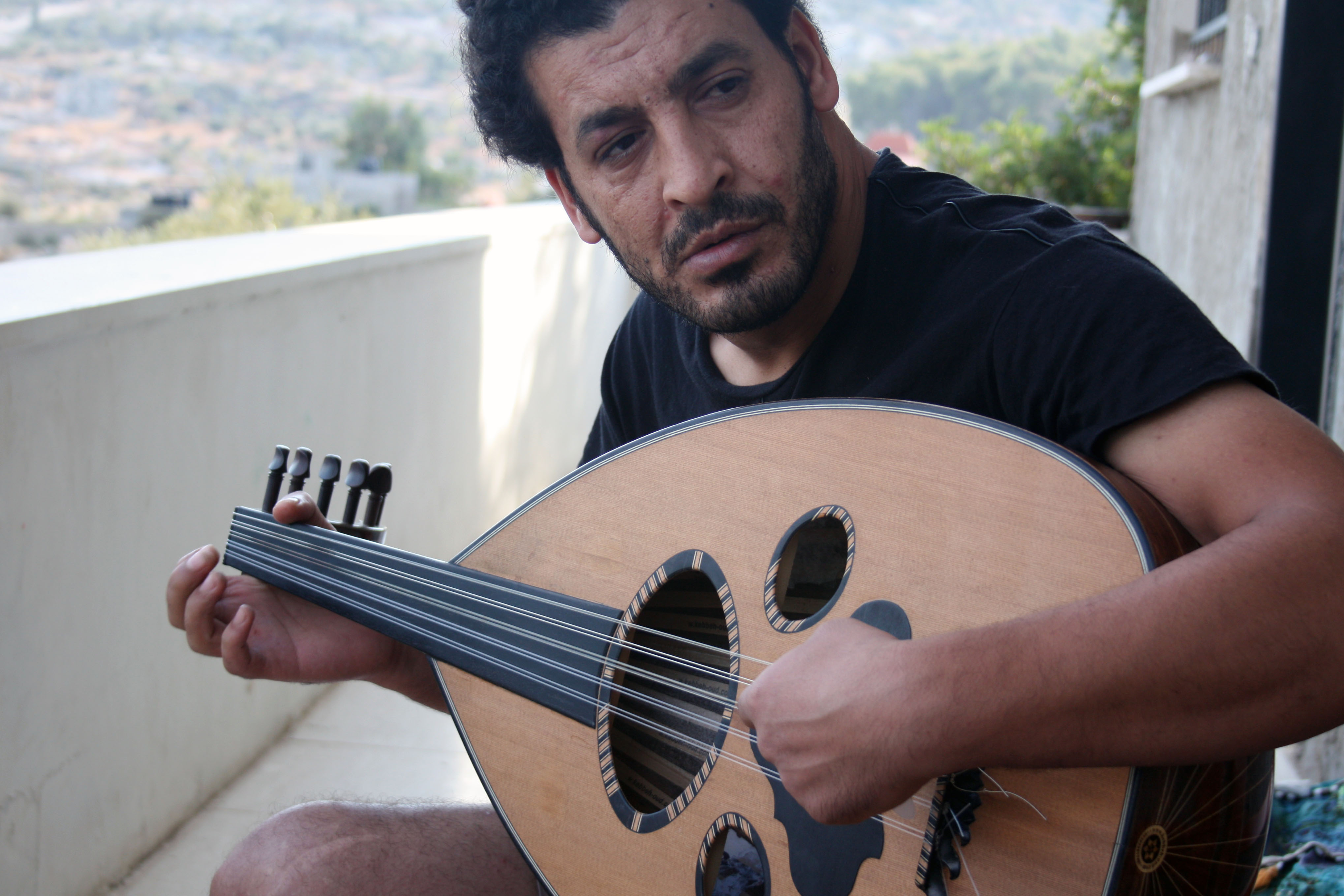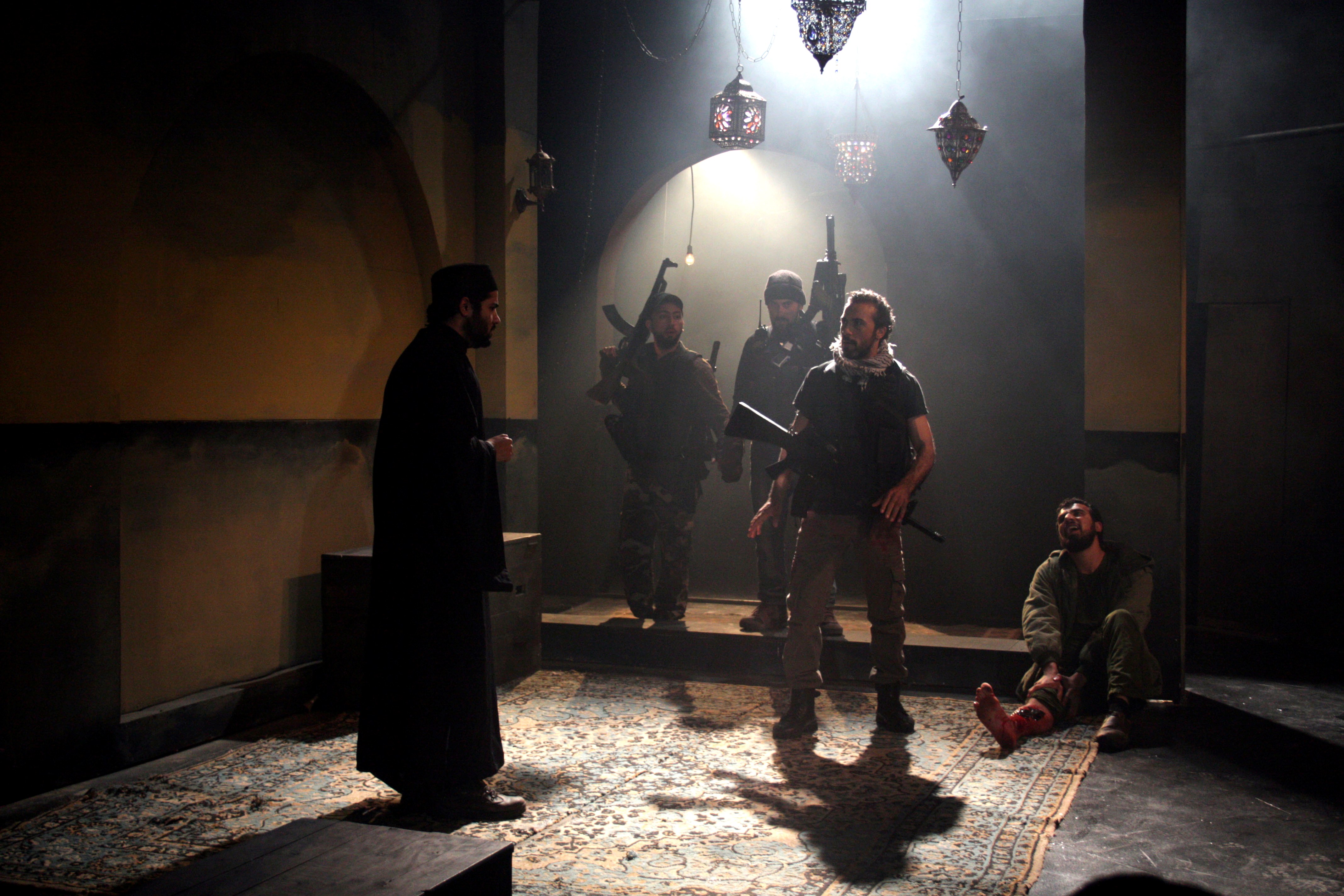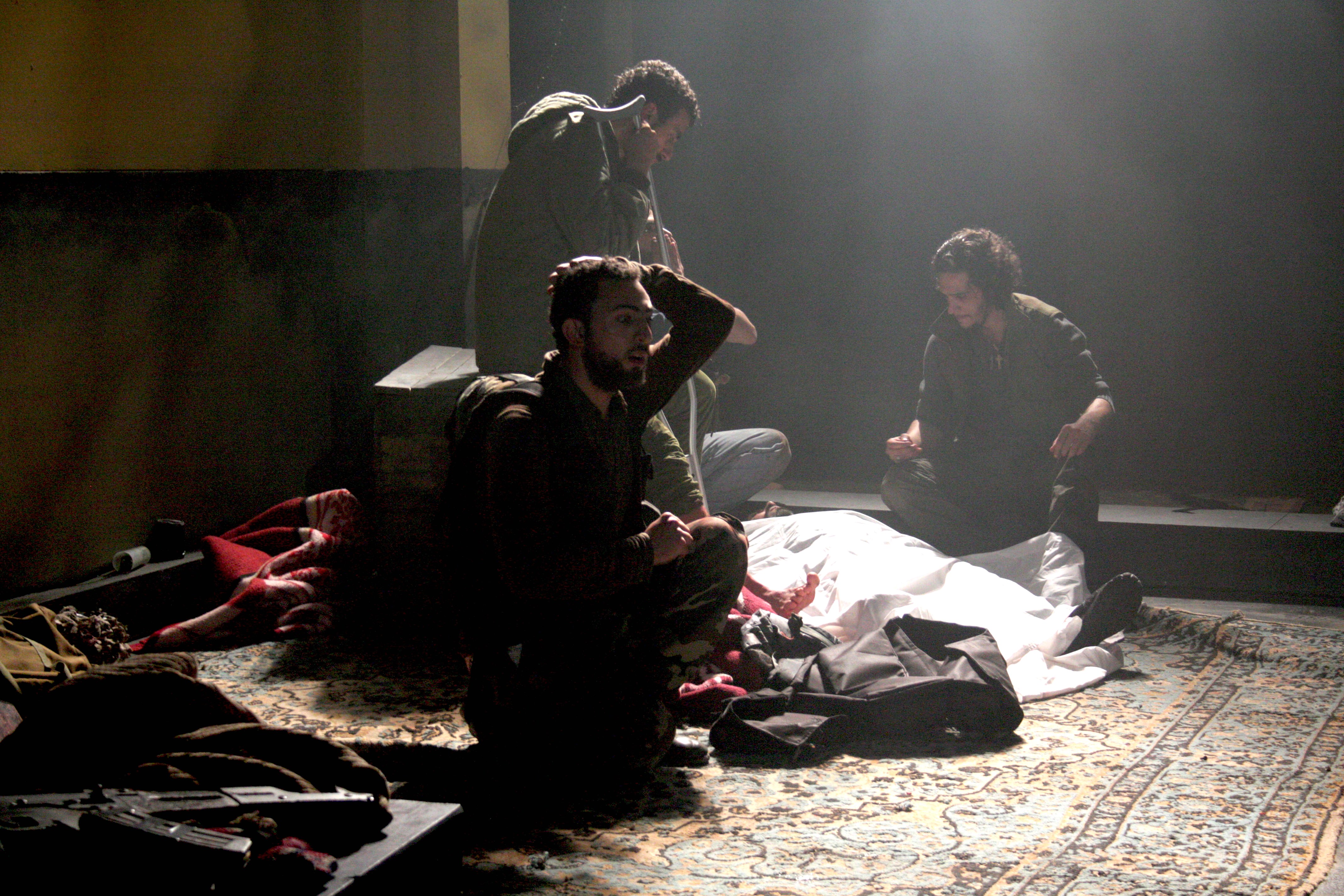"We need more time to be more free"

Mr Al Raee, your new play is about the 39-day siege of the Church of the Nativity in Bethlehem during Israel's Operation Defensive Shield in 2002. How was the idea developed?
Nabil Al Raee: During a tour in Switzerland in 2011, Zoe Lafferty met someone who said he had been inside the church. He approached the team after the show. It's a story that is still alive, and the evidence of that are the exiled fighters who live abroad. I also have a personal connection with the story. I lived my childhood with two of them, they were from Arroub camp. I was very much interested to hear their stories because we didn't meet after what happened.
This will be your first tour of the UK. Why choose this play?
Al Raee: This story was badly presented to the British public. The media were talking about how a group of terrorists went to the Nativity Church in Bethlehem and took hostages from the church, until the international community interfered and tried to create a deal. First, the Nativity Church is in Palestine. The group of fighters were Palestinian. The Israelis came to invade Bethlehem, a Palestinian city, and decided to lock them in the church.
We want to discuss what happened, because people misunderstood history many times. History plays a big part in our lives. Is history written by people? I need to question that. And as a Palestinian, I have a perspective, I have been living under an unjust occupation for a long time.

Does being a registered NGO limit the scope of your work?
Al Raee: That's always the fear, but I'd say we are lucky. Because of our identity, whoever wants to deal with us knows that we are not a theatre doing art for art. In my personal opinion, we are a political theatre. I think we are in a process to one day, I hope, be able to get rid of all the funding because in many ways, it's a limitation.
Do you think of the Jenin refugee camp as your audience?
Al Raee: I think as a starting point yes, your audience is around you so you think about it. The Freedom Theatre has a history in the camp; it's a continuation of the Stone Theatre that was established there before. But the idea itself is bigger than a local community.
Relations between the Freedom Theatre and the community, known for its conservatism, have been strained at times. You've even received physical threats. Have things changed over the years? Do you feel that you have to compromise because of where you are?
Al Raee: It's a love-hate story. As a theatre, we have to read our environment. I don't think compromise is the right word, because you never want to compromise. You want to be smart yes, but not compromise. I am not here to please all the people. I am here to participate, to share with the people, but also to question them, to question their thinking and their way of living.
I am against victimising, but you need to analyse in order to understand. So yes you have a normal – or abnormal – reaction from people, but you have to factor it in. Not so long ago, Jenin refugee camp was attacked. In 2002, most of it was destroyed. The connection with anything new, foreign, was an Israeli soldier.
It's easy to say "let's move the theatre to the city". But what would be the point? This place, its nature, was created here. The story of the people who associate themselves with the theatre is here.

Like the story of Juliano Mer Khamis. Born of a Jewish mother and Palestinian father, he once said he was "100 per cent Palestinian and 100 per cent Jewish". What is his legacy? Has the Freedom Theatre changed since his death?
Al Raee: He wasn't accepted here by certain people because he was Jewish. He wasn't accepted inside [Israel] because he was Palestinian. He himself was a conflict. But he always mentioned that our situation is not a conflict and was never a conflict, it's an occupation.
Juliano was connected to the Stone Theatre, the Freedom Theatre, the establishment of the new idea of cultural resistance. I think that many things have been happening, but the most important thing is that the idea itself is growing.
When Juliano was murdered, a lot of anger came through the place. First, you don't know who did it. People were hurt so deep, we started to fight with each other; we didn't know where to direct this anger. Some of us started to blame each other. But most of us decided that we should continue. You start thinking that if you leave, you give a gift to the people who murdered him. The intention behind the murder is to close the freedom theatre, to shut down the idea starting from Juliano.
What idea do you believe they were trying to shut down, and why?
Al Raee: To be free in your mind is very dangerous. To free your mind from limits, to start saying no and question, it's a big deal.
Yes it was a difficult issue to put girls and boys on stage, but it wasn't that big a deal. People wanted to make a big deal of it, but it wasn't. Yes people can get to a level where they are angry, but not kill for that. Why did no one in the camp ask us to take our stuff and leave before? They could have done that and they did it many times with other organisations. I don't think the work of Juliano, on that level, killed him. I don't think a normal, angry guy wanted to kill this man.
Who then?
Al Raee: Our statement is to say it's unknown.
Is the Freedom Theatre free?
Al Raee: We are saying the freedom of the individual comes at the first level, and then we can fight for collective freedom if we can. We are free, but we need more time to be more free.
Interview conducted by Ylenia Gostoli
© Qantara.de 2015
